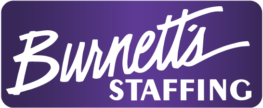Recent flooding in the Houston area, an ongoing parade of summer tornadoes, and the start of hurricane season just around the corner mean that Texas is no stranger to the threat of disaster. Yet only 13 percent of U.S. businesses have a written disaster recovery plan, according to the Small Business Administration (SBA).
Don’t let your business become a disaster statistic. Here are the questions you should ask to help your business weather a disaster safely and get back up and running in less time:
Which disaster plans are most important right now?
If your business sits in a river’s flood plain, knowing what to do if the banks overflow is a priority. If you’re near the coast, hurricane protocols might be needed. Businesses that deal with sensitive information or hazardous materials might need additional plans that meet federal and state requirements as well as ensuring safety on the ground.
The point of this analysis is not to predict every possible “what if.” It’s to identify the most likely scenarios and the biggest risks, so you can plan to avoid or mitigate them.
Does each staff member know what to do in case of a disaster?
No matter how large or small your business is, each member of the staff should have a responsibility in a disaster. Office staff might need to “check in” with a supervisor while key staff members may be asked to assemble on-site as soon as it is reasonably safe to do so. Creating phone trees, procedures, and other “to-do” lists can help your staff stay calm in an emergency because they’ll always know which step to take first.
While creating these plans, don’t forget to add one for internal disasters like a fire alarm. Does your staff know how to get out of the building and where to assemble?
Who is our “point person”?
In many disaster scenarios, your company may need to deal with persistent members of the media or the public. Plan ahead to route these inquiries to a single “point person” who can speak on behalf of the organization. Instruct staff members to send the media and other individuals to the “point person” and to refrain from making comments, either in person or on their own social media networks. Once the emergency has been handled, your business can focus on providing the public information needed.
How will we update important people and agencies if a disaster strikes?
In any emergency, your first concern should be for the safety of every employee. In a long-term situation like a post-hurricane cleanup or an ongoing flood, however, your business will also need to reach out to government agencies, your staffing partner, and other connections in order to seek help. Create an “update list” with contact information so you’re never stranded with a need for help but no way to ask for it.
At Burnett’s Staffing, we partner with our clients to help them plan for the long term, the short term – and the unexpected. Contact us today to learn more about our staffing services in Irving and beyond.
